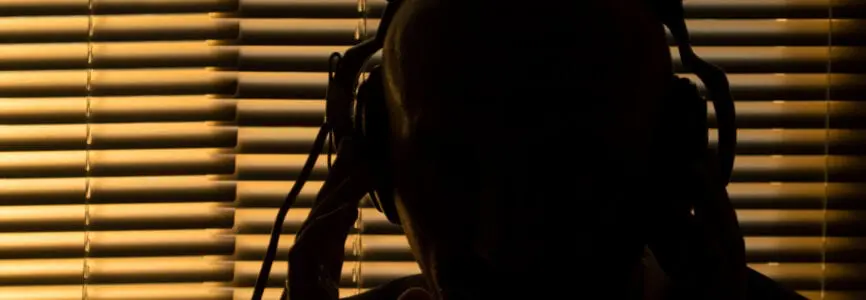Bioethics Forum Essay
Before We Turn to Digital Contact Tracing for Covid, Remember Surveillance in the Sixties
For three years during the 1960s, I worked for various organizations, all of us trying to end the war in Vietnam. At one point, I was employed by the Fifth Avenue Peace Parade Committee, while my boyfriend worked for the Student Mobilization to End the War in Vietnam (affectionately known as “The Mobe”). Both of these groups were coalitions of organizations that came from various perspectives, everything from Trotskyite to pacifist, but all with the common purpose. Or so we thought.
As time went on, we became increasingly frustrated with our inability to work collaboratively; it seemed like we spent more energy squabbling with each other than in fighting against the war. The sense of guilt and failure dogged me for years. Had we really been so immature that we let petty differences get in the way of our goal? Did we really care more about who marched first in a parade, than about saving children from napalm?
It wasn’t until 1986, when the Socialist Workers Party won a tort case against the Department of Justice and the F.B.I., that I fully understood how the FBI had used hundreds of informers and agents to not only spy on coalitions, but to actively seek to disrupt them. They sent obscene letters to set one group against another, tried to foment violence at peaceful demonstrations, and posed as employees of antiwar groups. From the agency that tried to drive Martin Luther King Jr. to suicide, I suppose this is no surprise. But even decades after it happened, I was shaken to discover that colleagues whom I had liked, whom I had eaten lunch with five days a week, were really agents whose purpose was to frustrate every goal for which I was working. I hadn’t even known them by their real names.
Why am I thinking about that now? A couple of weeks ago I watched an excellent Hastings Center webinar on digital contact tracing for Covid-19. There are various ways to do this, but the best seems to be an app on our phones that records where we have been and with whom we have been in close proximity. If someone reports getting sick with the virus, everyone who has been close to them can be traced and tested. As Ed Felten explained, “Everyone’s phones keep records, and various companies keep records, of exactly where we’ve been, based on GPS and other location finders. You could then take people’s location histories and match them against each other, and if you see that two people have been in the same place at the same time, you would know there was a possible exposure.”
The presenters are really smart people, and it sounds pretentious and condescending to call them naive. And yet their faith that we could prevent this information from being misused was astounding. In order to place such an app on my phone I would have to believe at least the following things: that the promised anonymity would be respected, that the government would not get hold of it, and that it would not be used to trace contacts for other reasons, e.g., to discover an immigration lawyer’s clients. (Do you remember when we discovered that Uber’s passenger app not only traced you to your destination, but continued to trace where you went after you exited the car?)
As the other panelist, Ryan Calo, noted, we would need important safeguards against mission creep, whereby the surveillance app did not de-activate just because the pandemic was over. Perhaps the government discovers a new use for it; perhaps we kind of get used to it, the way we are used to the idea that our E-ZPass keeps a record of every toll booth we have gone through and our grocery store loyalty card keeps a record of the foods we buy. Calo noted that “clear, explicit rules are critical,” but what point are rules if the government clandestinely subverts them?
There are a lot of things I do to participate in the fight against Covid-19. I wear a mask faithfully, have not gotten a haircut in months, teach via Zoom, and haven’t hugged my own son. I have volunteered for a vaccine trial. But for me, digital contact tracing is a bridge too far. I have noticed speculation that the “boomer” generation wouldn’t adopt this technology because we are less comfortable with tech. Maybe we won’t adopt this technology because we have long memories.
Dena S. Davis, JD, PhD, Hastings Center Fellow, is the endowed presidential chair in health and a professor of bioethics and religion studies at Lehigh University, @bioethicsdsd. A version of this essay appeared on her blog, bioethics and other stuff.














Or because we have failed to teach our kids those long memories!
Very thought provoking. I don’t think there were FBI agents among my college classmates, but some of my fellow SDSers were followed by the FBI. You always knew who they were. Watching “The Man in the High Castle” and rereading “1984” made me acutely aware of how the state can use information against you. At the same time, the PH people tell us that testing and contact tracing is essential to fighting the virus. If social distancing and wearing masks are not enough, it’s a real dilemma.
If anyone is still reading this, there was a very interesting article in NATURE that provided data showing that contact tracing saved thousands of lives in the UK alone, and also that more sophisticated software kept the info away from the gov’t and unde r one’s personal control. https://www.nature.com/articles/d41586-023-02130-6?utm_source=Nature+Briefing&utm_campaign=303d9b9929-briefing-dy-20230704&utm_medium=email&utm_term=0_c9dfd39373-303d9b9929-43334621